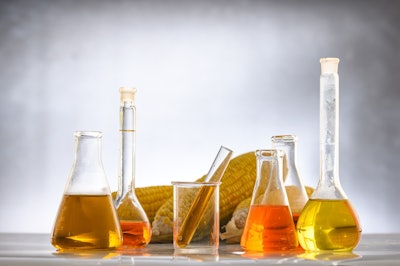
Following a pledge by members of the Renewable Fuels Association (RFA) to achieve net-zero carbon emissions, on average, by 2050 or sooner, a new report shows that new and emerging technologies and practices could help the industry achieve this vision well before mid-century.
“Last summer, RFA’s member companies adopted a bold vision to achieve a net-zero carbon footprint for ethanol by 2050 or sooner," says RFA President and CEO Geoff Cooper.
"This new study shows that, with the right policy and investment signals in place, we can reach that objective sooner than 2050 and could even be producing carbon-negative ethanol by mid-century."
The ethanol industry is already halfway down the road to net-zero emissions, as today’s corn ethanol cuts GHG emissions by about 50% compared to gasoline, says Cooper.
"This study provides the roadmap for completing the second half our journey to carbon neutrality.”
The new report, Pathways to Net-Zero Ethanol: Scenarios for Ethanol Producers to Achieve Carbon Neutrality by 2050, was prepared by lifecycle analysis expert Isaac Emery, Ph.D., of Informed Sustainability Consulting LLC.
“By surveying over two dozen potential emissions reduction actions throughout the corn ethanol supply chain and prioritizing them by technical feasibility, scale of emissions reduction, and cost, this study presents a series of pathways to net-zero CI [carbon intensity] corn ethanol by 2050,” Emery writes.
“Updated lifecycle emissions forecasts of corn ethanol from 2020 through 2050 show that the industry can achieve net-negative CI ethanol by adopting near-term technologies and expanding best practices in corn farming.”
The report identified several actions that would constitute a “core pathway” to net-zero emissions:
- Renewable energy use by corn and ethanol producers
- Expanded adoption of corn kernel fiber fermentation at dry mills
- Better-than-business-as-usual’ industry-wide efficiency improvements and ethanol yields
- Carbon capture and sequestration by ethanol facilities
- Expansion of conservation tillage and other low-carbon practices by corn growers
Altogether, the study identifies five distinct pathways to net-zero corn ethanol by 2050, based on a set of 28 emissions reduction actions that were considered.
Opposing study finds corn ethanol worse than gasoline
Last week, a study, released by Proceedings of the National Academy of the Sciences, and funded in part by the National Wildlife Federation and U.S. Department of Energy, found that corn-based ethanol is 24% more carbon-intensive than gasoline due to emissions resulting from how farmers grow corn and how the ethanol plants produce the gasoline alternative.
“Corn ethanol is not a climate-friendly fuel,” Dr. Tyler Lark, assistant scientist at University of Wisconsin-Madison Center for Sustainability and the Global Environment and lead author of the study, told Reuters.
Cooper with RFA called last week's study "completely fictional and erroneous," arguing the authors used "worst-case assumptions [and] cherry-picked data."

















